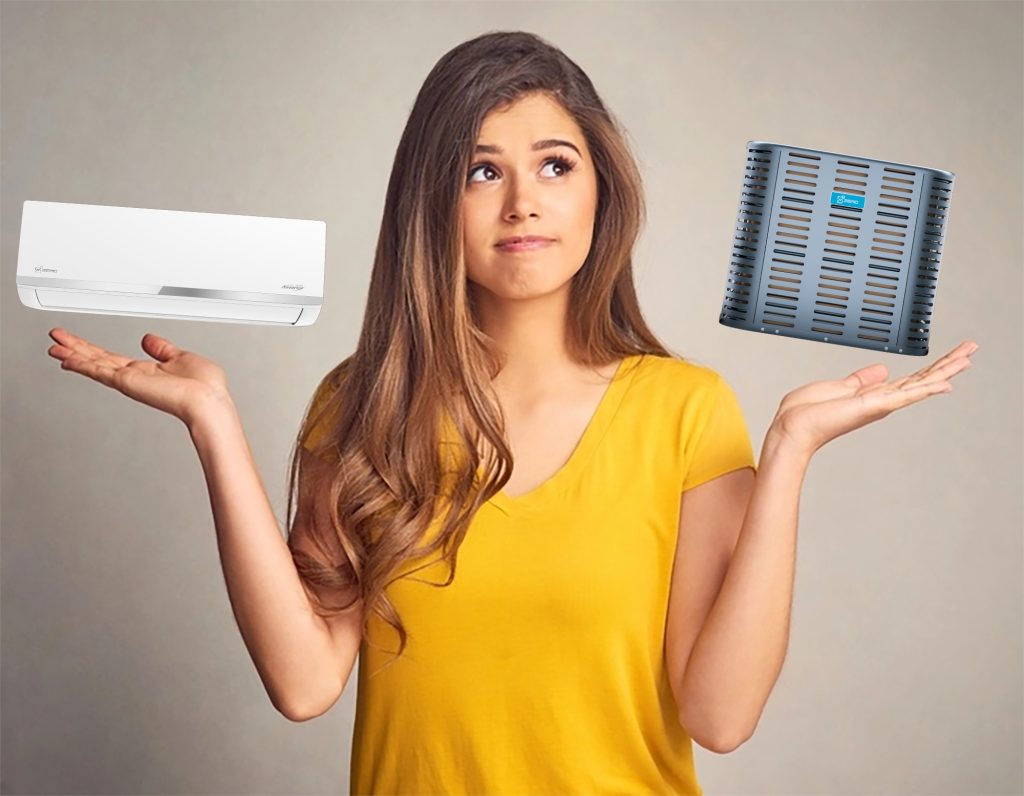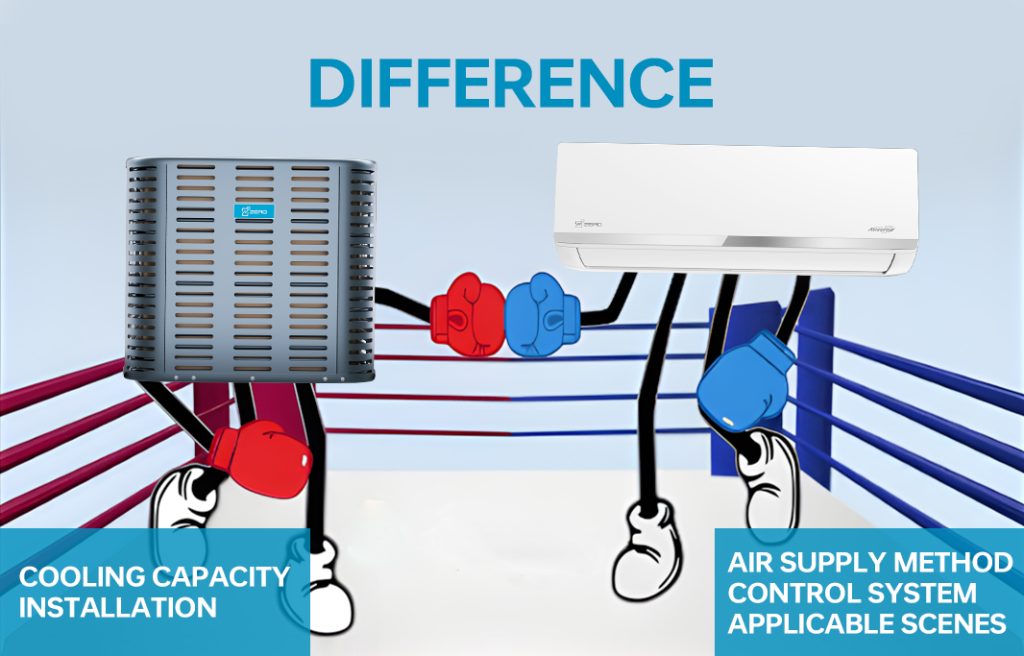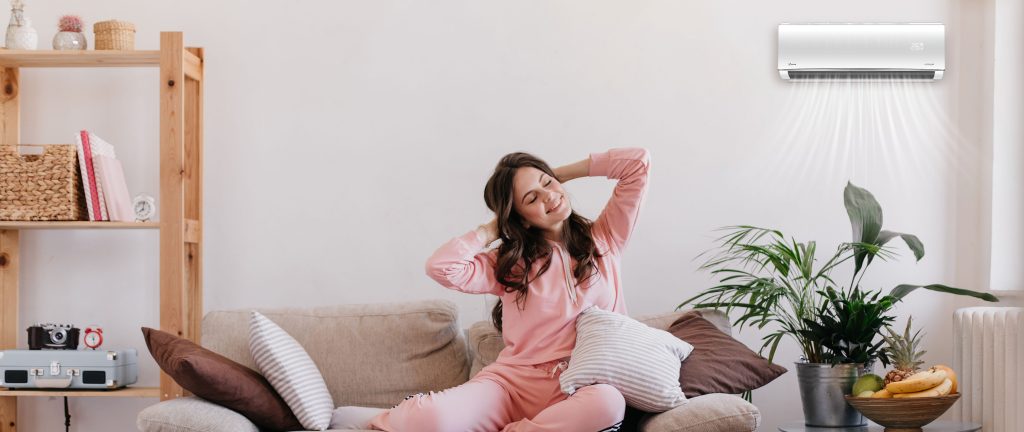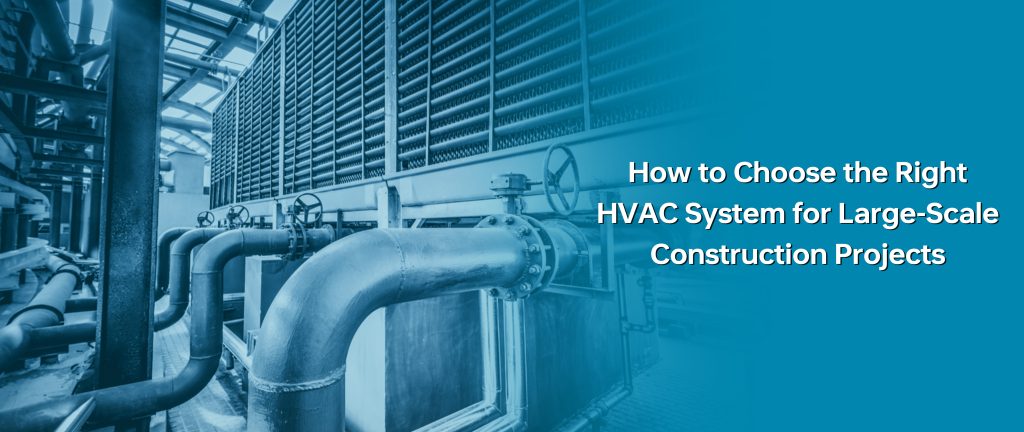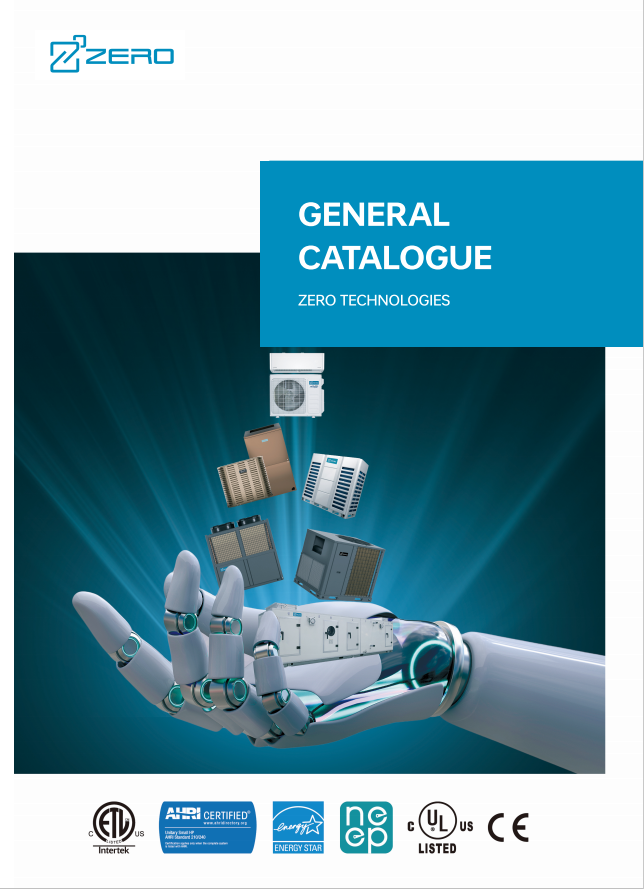Air conditioning systems play a vital role in modern living and working environments. When choosing an air conditioning, mini split units and light commercial units are two common options. What follows is a detailed comparison of the differences, advantages, and disadvantages of these two air conditioning systems. It will help you better understand their features and application scenarios.
Basic Concepts
1. Mini Split AC
Mini split units consist of an indoor unit and an outdoor unit. The indoor unit is responsible for cooling, heating, and air supply. The outdoor unit contains the compressor and condenser, which is responsible for heat dissipation and refrigerant circulation.
2. Light Commercial AC
Light commercial air conditioning is a kind of air conditioning system between domestic air conditioning and large central air conditioning. It usually has a larger cooling and heating capacity, suitable for small commercial premises or larger residential spaces.
Difference
1. Cooling capacity
The cooling capacity of mini split units is usually between 9K-36K, while the cooling capacity of light commercial units can be up to 18K-60K.
2. Installation
Mini split units are usually wall-mounted or cabinet installation. But light commercial ac can choose ceiling, duct, or floor type installation, more adaptable.
3. Air supply method
Mini split air supply is relatively simple, mainly relying on the inner machine’s direct air supply. The light commercial machine can be realized through the duct system, multiple outlets, and a wider range of coverage.
4. Control system
Mini split units generally use a simple remote control. The light commercial machine is usually equipped with a more complex control system and can realize partition control, timing control, and other advanced functions.
5. Applicable scenes
Mini split units are mainly used in homes and small offices. Light commercial machines are suitable for large apartments, stores, restaurants, and other medium-sized commercial spaces.
Comparison
 Advantages of mini split ac:
Advantages of mini split ac:
1. Simple installation, lower cost.
2. Low noise, suitable for a quiet environment.
3. Beautiful appearance, small impact on interior decoration.
4. Simple maintenance, low failure rate.
Disadvantages of mini split ac:
1. Limited cooling capacity, not suitable for large space.
2. Outdoor installation affects the appearance of the building.
3. Low energy efficiency when many units are used.
4. The air supply range is limited, easy to cause uneven temperature distribution.
Advantages of light commercial ac:
1. Strong cooling and heating capacity, suitable for large space.
2. Flexible installation, adaptability.
3. Multiple air supply methods, uniform temperature distribution.
4. Advanced control function, easy to centralize management.
5. High energy efficiency, long-term use of more energy-saving.
Disadvantages of light commercial ac:
1. High initial investment, large installation cost.
2. Complicated installation, requiring a professional team.
3. Relatively high noise, not suitable for a quiet environment.
4. Higher maintenance cost and complicated troubleshooting.
5. Higher requirements on building structure, difficult to remodel.
Suggestions
1. The size of the space: small space to choose a mini split ac, large space to choose a light commercial ac.
2. Frequency of use: intermittent use of the mini split ac, long time use of light commercial ac selection.
3. Budget considerations: limited budget selection of mini split air conditioners, light commercial air conditioners require a higher budget.
4. Installation conditions: choose a mini split ac for a simple building structure, and choose a light commercial air conditioners for a complex environment.
Mini split air conditioners and light commercial air conditioners have their advantages and disadvantages. Mini split air conditioners are suitable for small spaces and personal use, simple installation, and low cost. Light commercial air conditioners are suitable for large spaces and commercial use, powerful and efficient. When choosing an air conditioning system, you should consider the size of the space, the use of demand, budget, and other factors to choose the most suitable solution. Regardless of which system you choose, proper installation and regular maintenance are the keys to ensuring the efficient operation of your air conditioner.

